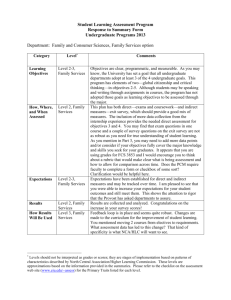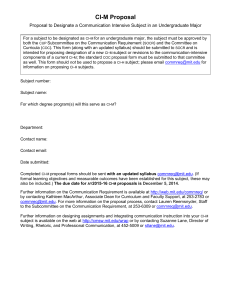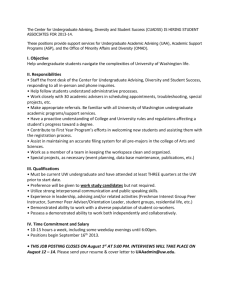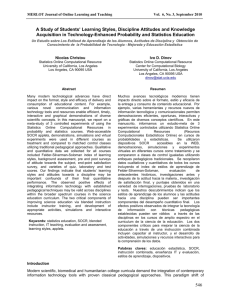AY2015 SB Proposal Form
advertisement
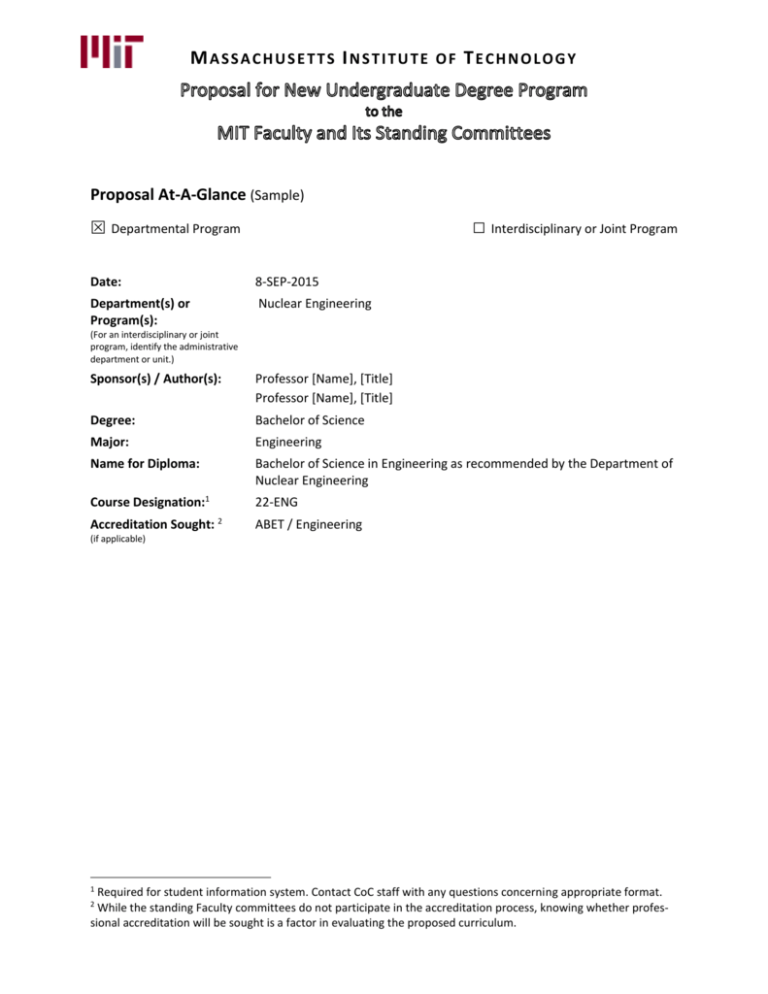
MASSACHUSETTS INSTITUTE OF TECHNOLOGY Proposal At-A-Glance (Sample) □ Interdisciplinary or Joint Program Departmental Program Date: 8-SEP-2015 Department(s) or Program(s): Nuclear Engineering (For an interdisciplinary or joint program, identify the administrative department or unit.) Sponsor(s) / Author(s): Professor [Name], [Title] Professor [Name], [Title] Degree: Bachelor of Science Major: Engineering Name for Diploma: Bachelor of Science in Engineering as recommended by the Department of Nuclear Engineering Course Designation:1 Accreditation Sought: 22-ENG 2 ABET / Engineering (if applicable) 1 Required for student information system. Contact CoC staff with any questions concerning appropriate format. While the standing Faculty committees do not participate in the accreditation process, knowing whether professional accreditation will be sought is a factor in evaluating the proposed curriculum. 2 Proposal for New Undergraduate Degree Program I. Introduction – REQUIRED BY ALL REVIEW COMMITTEES 1. Explain the educational rationale for the program and its context with respect to the evolving intellectual trends in the relevant field(s). Identify any alternatives you may have considered and how they measured up to your educational objectives. 2. Describe the professional demand for this degree and your general expectations regarding student enrollment in this program in each of its first five years of operation. 3. Identify any existing MIT programs—both majors and minors—whose enrollment could potentially be affected by the availability of this program. Describe the consultation process you have followed in reaching out to the departments or academic units and faculty responsible for these programs. (See Section III for a description of the supporting letters that are required.) How is this proposed program unique from these other programs? 4. Describe existing or additional resources needed to implement this proposal and plans for confirming such resources, including any indirect effects on existing programs. Page 2 of 7 Proposal for New Undergraduate Degree Program II. Description of the Proposed Curriculum – REQUIRED BY ALL REVIEW COMMITTEES 1. Describe the program, including its structure and coherence, its educational objectives, and any other relevant aspects of the overall educational experience. If the sponsoring entity does not currently offer an undergraduate degree, include the rationale for establishing an SB program within the unit. 2. A. List any required or recommended subjects in this program that are offered by other departments. Describe the consultations that have taken place with the department responsible for each subject and the conclusions that have been reached regarding potential impact on enrollments. B. For the subjects listed above, describe the resource implications for those units. Summarize how these resource issues will be addressed, and describe the consultation process you followed with the departments and faculty who are responsible for these subjects. 3. Based on current policy, students may not pursue a second major in the same area as their primary major. Specify any majors that will be disallowed for students to combine as a double major with this program. 4. Based on current policy, students may not pursue a minor in the same area as their major(s). Specify any minors that will be disallowed for students who pursue this major. 5. Provide a degree chart, suitable for publication in the MIT Bulletin. The degree chart must summarize both General Institute Requirements and departmental requirements. The degree chart must also clearly convey the structure and required elements of the program. For committee review, subjects must be identified by number and title, as well as with total units of credit, GIR attributes (where applicable), and prerequisites / corequisites (where applicable). (Subjects are displayed differently in the published catalog.) Graduate subjects may not be included on an undergraduate degree chart. See pp. 4-6 of the instructions for information on how to format a degree chart. Consult staff to the CoC for assistance. Page 3 of 7 Proposal for New Undergraduate Degree Program III. Letters of Support – REQUIRED BY ALL REVIEW COMMITTEES Letters of support must be provided from heads and chairs of all involved academic units (including reports of discussion by affected faculty),3 as well as from relevant Deans. The School Deans’ letters must include reports on discussions regarding the program that have occurred within School Councils. The letters must address the intellectual content of the program as well as the availability of resources (including faculty and other instructional staff, administrative support, space, and fiscal resources). The committees reserve the right to request additional letters if deemed appropriate. 3 Letters should include references and statements of support from other academic units that offer programs whose enrollments may be impacted, as well as those that offer any required or recommended subjects, including CI-M subjects, for the proposed program. Page 4 of 7 Proposal for New Undergraduate Degree Program IV. Committee-specific Requirements Subcommittee on the Communication Requirement (SOCR) MIT’s Communication Requirement specifies that each undergraduate degree program must be designed so that students take at least two communication-intensive subjects within their major program (CI-Ms). Typically undergraduate programs are structured so that students take the two CI-M subjects in their junior and senior years. These subjects should provide a balance of instruction and practice in oral and written communication. Examples of CI-M programs Departments structure their required CI-M programs in a variety of ways, depending upon the number of CI-M subjects approved and the number of tracks within the major. The most common models are illustrated below. You may view all CI-M programs on the Communication Requirement website. A department with 2 approved CI-M subjects: 5.36 Biochemistry and Organic Laboratory and 5.38 Physical Chemistry Laboratory A department with a choice for the first CI-M subject and a required second CI-M subject: 2.009 The Product Engineering Process or 2.013 Engineering Systems Design or 2.750 Precision Machine Design and 2.671 Measurement and Instrumentation A department with a flexible track that allows for CI-M subjects to be taken outside the department. 3.014 Materials Laboratory or 3.042 Materials Project Laboratory and one of: 2.009, 2.671, 3.042, 6.152J/3.155J, 5.36, 5.38, 6.021J/2.791J/20.370J, 7.02J/10.702J, 10.26, 10.28, 10.29, or 10.467 1. Describe the general content, objectives, and structure of the communication component of the proposed program. 2. List the number and title of all the CI-M subjects in the program proposal. If more than two subjects are listed, identify any subjects that are expressly required in the degree program and illustrate the subject options that satisfy the communication portion of the degree program. If any CI-M subject is offered by another department, attach a letter of support from the head of that department. Sponsors must complete a SOCR proposal form for each new or substantially revised CI-M subject. In addition, all subject proposals must be submitted in the Curricular Information System (CIS) by the department’s catalog coordinator. Proposals for new or substantially revised CI-M subjects must be approved by SOCR prior to being presented to the CoC. Page 5 of 7 Proposal for New Undergraduate Degree Program Committee on the Undergraduate Program (CUP) Final approval by the CUP is contingent upon SOCR’s approval of program CI-M subjects. Administration of the Proposed Program 1. Identify the core faculty who will be responsible for the day-to-day operation of the program, and of any broader advisory group that may be required to provide ongoing oversight and assure continuity over time. 2. Describe the plan to oversee, monitor, and evaluate the program. Interdisciplinary and joint programs must identify a primary academic unit through which the program will be administered. 3. Describe the academic and advising infrastructure for the program. Page 6 of 7 Proposal for New Undergraduate Degree Program Committee on Curricula (CoC) Final approval by CoC is contingent upon the approvals of both SOCR and CUP. Description of the Proposed Curriculum 1. Provide road maps, demonstrating how students entering as first-semester sophomores, secondsemester sophomores, and first-semester juniors would be able to progress successfully through the program for each of eight semesters while adhering to faculty rules. The road maps must illustrate how the proposal is in compliance with the subject and unit requirements described in Section 10.4 of the Guidelines of the Committee on Curricula. (See sample outline on p. 7 of the instructions.) 2. List any new or substantially revised subjects included in the proposal. All subject proposals must be submitted by the department’s catalog administrator in the Curricular Information System (CIS). Proposals for new or substantially revised CI-M subjects must be approved by SOCR prior to being presented to the CoC. 3. Provide a description of the program that is suitable for publication the MIT Bulletin. Departmental programs are described in the appropriate chapter under Schools; interdisciplinary programs are described in the Undergraduate Programs section under Interdisciplinary Programs. 4. For Engineering programs seeking professional accreditation, describe how the proposed program conforms to the accreditation requirements. Page 7 of 7





